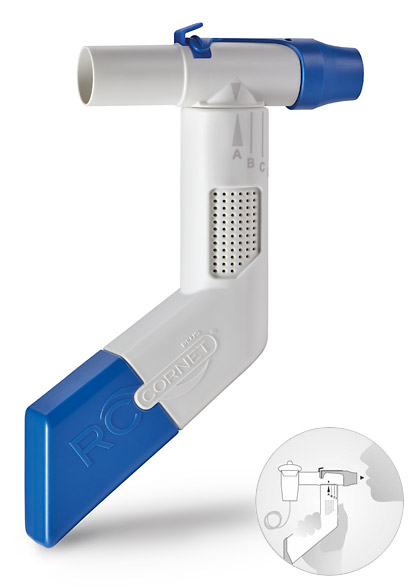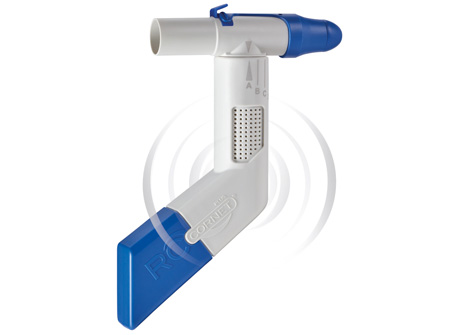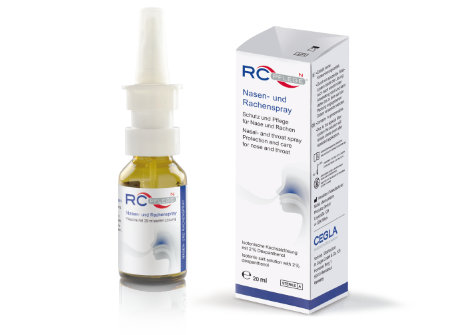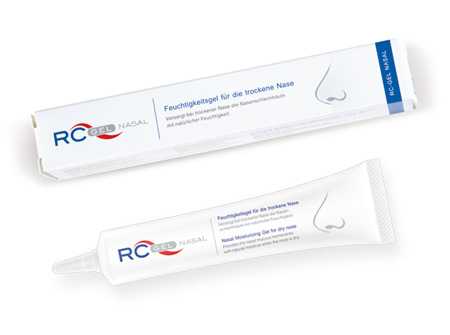Care of the respiratory tract minimises the risk of infection
You can prevent infections and significantly minimise the severity of possible disease through daily care of your airways.
There is much talk nowadays of hygienic measures to prevent infections with the Coronavirus. However, the actual location where the infection occurs, the respiratory tract, is remarkably not given much attention.
There are actually numerous possibilities to prevent a viral infection and to considerably attenuate the course of disease. Especially in the case of respiratory patients with asthma or COPD, these measures are more important than ever.

Care of the respiratory tract has an antiviral effect
In this connection, the following fact is of special importance: The risk of infection increases with the number of viruses that enter our respiratory passages. The good news in this finding is that you yourself can exert active influence on such viral dose. Care of the respiratory tract is thus an important component in the fight against Coronavirus and related viruses. 1)
Supporting the natural passage of mucus
Our airways possess an effective self-cleansing mechanism: As if on a conveyor, the mucous membranes transport unwanted infiltrators such as dust particles or pathogens outwards through the nose or throat.
You can support the natural passage of mucus in the airways:
- The regular inhalation of steam or saline solution through the nose moistens the mucous membranes and dilutes stubborn secretions in the upper respiratory tract.
- In order to moisten the nasal mucous membranes, nasal douches (also called nasal rinse systems) or soothing sprays are additionally available.
- The inhalation of saline solution is also helpful for the lower respiratory tract. In order to reach the deeper lying bronchi, however, the use of an inhalator is necessary to nebulise the solution into fine droplets. 2)
Use of antiviral agents
Viruses – including the Coronavirus and flu viruses – are surrounded by a protective case. This protective case can be destroyed with the help of certain active agents. These active agents are found in soap or toothpaste, for example. Ginger and many mouth rinses also have an antiviral effect.
Regular gargling and drinking ginger tea are thus good options to combat the virus in the mouth and throat area.
Inhalation & other methods: effective even after infection
Experts estimate that in the upcoming months, approximately two thirds of the population in Germany will be infected with the Coronavirus. In this context, regular care of the respiratory passages is a good idea, to prevent the virus from advancing to the extent possible. The number of penetrating viruses is also critical to the further course of disease following a possible infection: the lower the viral load, the milder the symptoms to be expected. Therefore, the above-mentioned measures are an effective countermeasure, even after infection.
Quellen:
- Prof. Viola Vogel: Mit Atemwegspflege das Infektionsrisiko senken. (Beitrag auf der Homepage der ETH Zürich vom 13.03.2020)
- Lungenärzte im Netz: Einfaches Inhalieren kann Tröpfcheninfektion effektiv eindämmen. (10.01.2007)
Additional supportive auxiliary devices
RC-Cornet® PLUS NASAL
PEP / OPEP therapy for treatment of the upper airways
RC-Pflege® N
Nose and throat spray that reactivates the protective function of the mucous membranes
RC-Gel NASAL
Natural moisture for the mucous membranes of dry nasal passages
Subscribe to our
BREATHE EASY Newsletter
Tips and information on healthy airways!
- for all who wish to breathe better
- free of charge and convenient e-mails
- compact newsletter once a month
For all those who deal with pneumological topics related to the respiratory tract in a professional context, please find here the subscription to the CEGLA FACHNEWSLETTER.




